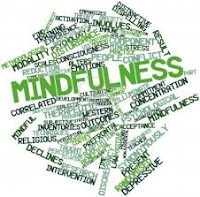Go on, admit it, you've done it too haven't you? You've quietly
counted how many days it is until Christmas. Whether by fingers or in your
mind, you've figured out how much time you have left until you are THERE. Gosh,
it sounds so...final!
 |
| And I'm not even mentioning the Waitrose advert with the bear... |
Maybe you've also done that "quick frantic shake of
the head" because it can't be true, can it? Christmas in HOW many days?
You demand a recount, desperately searching for extra fingers that signify
extra days, or an extra head in which to download the stress that the very idea
of Christmas conjures up. Well, be thankful you don't have two heads. *checks
in mirror*
But before pressing down on the accelerator and za-za-zooming
into the rest of December at ninety miles an hour, press pause. *gives a long deep sigh*
Why not take a few moments right now to consider where you've
been, how far you've come, what you're proud of about this year?
With eleven
months gone, there are some good things in the rear view mirror of 2013 that
you could keep in mind. Why? Because
your body hears everything your mind says, and if your mind is full of all the
Xmas-stress to come then you can guarantee your body will be full of that
tension too. *does a slow roll of the head from one side to the other* Give
yourself some time, pace yourself.
| Take a moment to look back, notice how far you've come... (image courtesy of Instant Imprints) |
A well known American running coach, John Bingham, says his
advice to any wannabe marathon runner is just two words: "Start slow"
he says. Sound advice. Having just run my eleventh marathon, this time across
the glory of the Sussex Downs, to Mr. Bingham's pithy wisdom I would add my own
two words - "Finish well".
And this is where marathon running meets the stress-filled
onslaught of Christmas: that as the winter temperature drops and the seasonal
to-do list rises, choose to finish the year well. You've made it this far.
There have been difficult moments for us all, probably some regrets and some
stuff that did your head in too. We all get that, because we're all human.
In our mentoring work at Lifespace Trust, we often pick up working
with young people whose time at school is close to being off the rails - for
all kinds of valid reasons. Our encouragement to them is that it doesn't have
to finish that way; that the past doesn't have to determine the future. That to
move forward it's vital to not lose touch with the good things inside them; to
not consign previous achievements or positive memories - however easy to
dismiss - to the box marked history.
Finishing well is a choice, not an
accident.
 Let's face it. The 'THERE' of Christmas will get here soon enough,
one day at a time. No sooner, no later. So right now, choose to finish your
2013 well. Whatever kind of year it has been so far for you. Decide what that
looks like for you - a card of appreciation to someone; a debt paid off or an
apology made; a bad habit stopped; an important friendship revitalised.
Let's face it. The 'THERE' of Christmas will get here soon enough,
one day at a time. No sooner, no later. So right now, choose to finish your
2013 well. Whatever kind of year it has been so far for you. Decide what that
looks like for you - a card of appreciation to someone; a debt paid off or an
apology made; a bad habit stopped; an important friendship revitalised.
Perhaps
this is the best present to give yourself this Christmas.
You decide: What does
finishing well look like for you?












